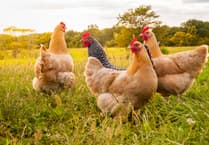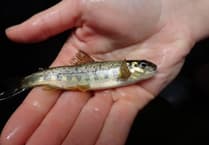Now is the ideal time for Devon farmers to cultivate soil and plant grass and winter crops, says Environment Agency experts.
What happens next in the post-harvest period could mean the difference between a good and bad winter if land isn’t prepared ahead of heavy winter rains.
Laura Bentley of the Environment Agency said: “Winter is our busy period as heavy rain falling on bare soil causes run-off, especially where the land is compacted and sloping, with disastrous consequences for pollution and flooding.
“Now is the time to cultivate and turn that compacted ground into permeable soil that rainfall and roots can infiltrate, then plant grass, cover crops or winter cereals so that the crop can establish itself by the middle of October.
“Having a back-up plan is equally important. Difficult conditions in autumn can lead to cover crops failing, soil becoming capped with a hard, impenetrable crust and becoming slumped which can lead to runoff and erosion.”
The lack of rain in Devon has resulted in hard, dry fields. When fields bake hard and dry, they act more like concrete than a sponge - instead of soaking up incoming rain, the water runs off, risking floods, washing away topsoil, and leaving crops struggling to root in poor, compacted ground.
Trials carried out by the Environment Agency and Maize Growers Association demonstrated that undersowing can be an effective mitigation method to reduce the risk of soil erosion over winter.
Ahead of winter, farmers have also been urged to check they have enough capacity to store slurry without the need to spread, which could breach Farming Rules for Water and cause pollution. The EA’s Winter Ready campaign will support farmers across the country facing slurry storage issues.





Comments
This article has no comments yet. Be the first to leave a comment.